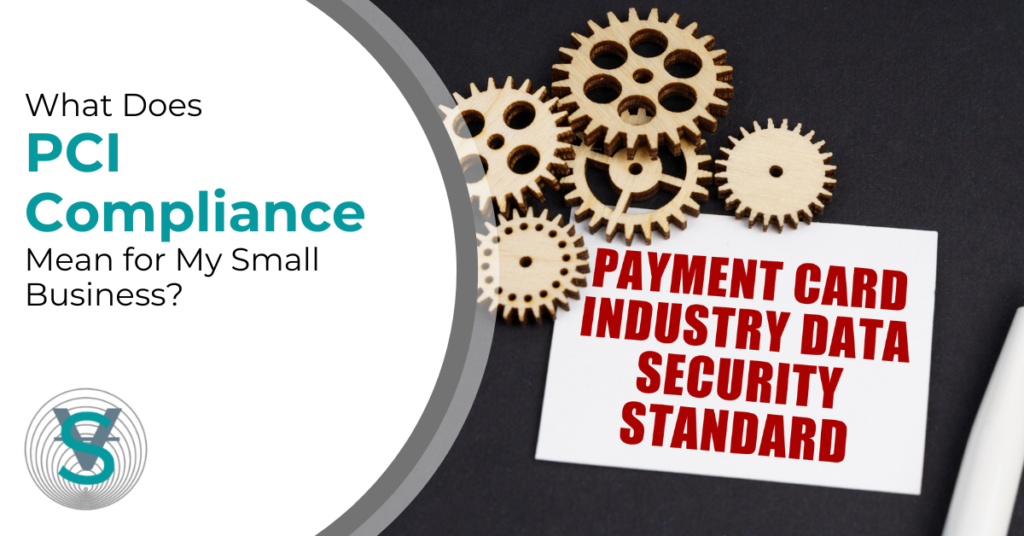
If you’re a small business that processes payments through debit and/or credit cards, then you need to know about the Payment Card Industry Data Security Standard (PCI DSS).
PCI DSS refers to a set of security requirements that payment processors must meet to ensure they’re accepting, handling and storing customer financial details in a secure way.
We’re not going to sugarcoat this: PCI DSS can be complex. Often, small businesses come to us because they’re confused about their obligations and the costs involved. In fact, research indicates that a mere 28% of organizations are PCI DSS compliant.
Companies large and small are struggling to meet this regulation – but achieving compliance tends to be more challenging for SMBs, who don’t have the in-house legal and IT expertise necessary.
The good news is that PCI compliance is achievable for SMBs. Below, we’ll explain everything you need to know about PCI DSS and how to comply.
Does PCI DSS Apply to my Small Business?
If you are a business that collects, transmits or stores credit, debit and cardholder data, PCI DSS applies to you.
What Requirements Do I Have to Meet?
Your obligations under PCI DSS depend on the number of debit/credit card payments you process annually.
There are 4 levels of compliance:
Level 1: Businesses that process over 6 million credit/debit card transactions each year. This includes in-store and online payments.
Level 2: Businesses that process between 1 million and 6 million credit/debit card transactions each year. This includes in-store and online payments.
Level 3: Businesses that process between 20,000 and 1 million credit/debit card transactions each year. This is for e-commerce payments only.
Level 4: Businesses that process under 20,000 credit/debit card transactions each year. This is for e-commerce payments only.
Under PCI DSS, only Level 1 merchants need to undertake a third-party assessment to validate their achieving requirements. If you fall into any of the other categories, you need to undertake a self-assessment questionnaire and submit an Attestation of Compliance (AOC).
What Does PCI Compliance Involve?
PCI Dss lays out 12 crucial requirements that companies must meet. These are:
- Install and maintain a firewall to safeguard cardholder data
- Change default system passwords and other security parameters
- Protect stored cardholder data
- Encrypt transmissions of cardholder data across open, public networks
- Maintain and update anti-virus software regularly
- Develop and maintain secure systems and applications
- Restrict access to cardholder data using the principle of least privilege
- Assign a unique login to each person with computer access
- Restrict physical access to cardholder data
- Track and monitor user access to network resources and cardholder data for anomalies or signs and malicious behavior
- Regularly test security systems
- Upkeep formal policies for information security
For SMBs, the 12 requirements can seem daunting. They are high-level and tell you what you need to do rather than how. For example, protecting cardholder data will involve using a plethora of security solutions. You’ll need cybersecurity expertise and knowledge to make sure you’re compliant.
What Happens If I Fail to Comply with PCI DSS?
We really wouldn’t recommend risking non-compliance with PCI. Here’s why:
- Non-compliance can lead to fines. These range from as little as $10 per month to more than $5,000 per month until compliance is met.
- Payment card brands can prohibit you from taking payments with their services, which can lose you money
- You’re more at risk of a data breach if you don’t follow PCI. This can damage your reputation among customers – as well as cost you a lot of money in downtime and reparations.
The Benefits of PCI Compliance
Achieving PCI compliance is about more than just avoiding negative consequences. You also stand to gain a lot from being proactive about this regulation.
Benefits include:
- Build customer trust: Achieving PCI DSS compliance is something to be proud of. You can tell your customers you are PCI compliant. This will help to build long-term trust and boost the reputation of your brand.
- Lays the groundwork for other regulations: If your business needs to meet other compliance regulations like HIPAA or SOC 2, PCI DSS gets you half the way there. All of these regulations use similar controls.
- Improved security: With PCI controls in place, it will be much more difficult for hackers to break into your business.
- Foster digital innovation: Digital is the future of business. However, technology that isn’t secured is a huge risk. By putting the right security solutions in place, you can more easily innovate and experiment with new ways to reach customers.
Need Help With PCI Compliance? We Can Assist!
If you need help meeting PCI Compliance, this is your next step. We can help you meet the requirements without breaking the bank! Book a 15 minute, no obligation video call with me via this link.